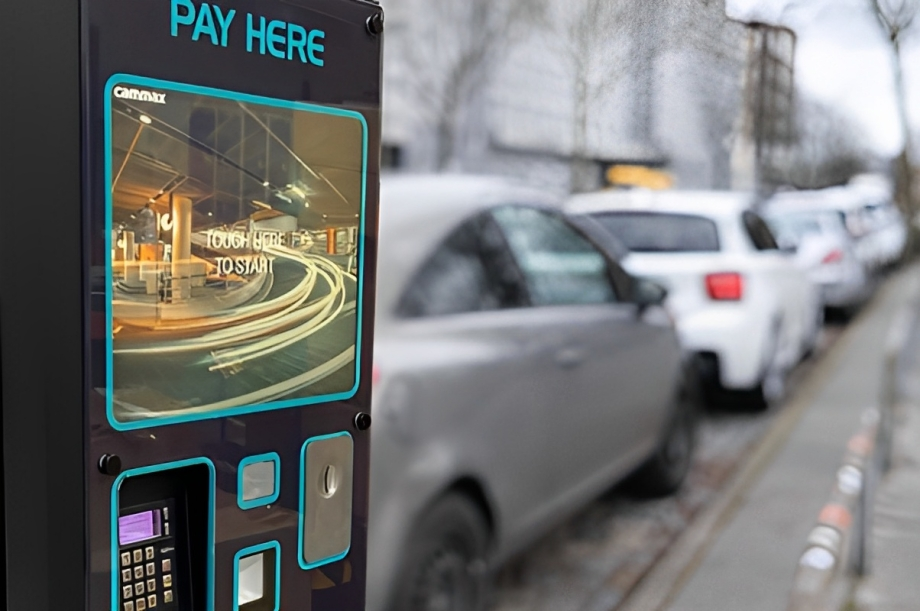
According to recent research conducted by Autocar, it has been revealed that an overwhelming 83% of UK motorists prefer traditional parking payment machines over parking apps.
In a survey of 1387 UK-based motorists, the automobile magazine found that more than four in five preferred to use cash or contactless card payments to park because they do not like having to download so many apps. Surveyed motorists also expressed concerns about fraud and voiced worries about the perceived complexity of digital payment methods for parking.
In contrast, only 14% of people preferred parking apps to physical payment machines.
The Autocar survey has reignited the fierce debate about parking payment apps and in particular their impact on the elderly and most vulnerable in society.
According to previous studies, older motorists are the least likely to want to use parking apps and a Consumer Intelligence poll last year even found that more than half of over-65s do not feel comfortable using apps such as JustPark and Ringo, most citing confusion with the sheer number of apps required to download to park in different locations and others claiming mobile connectivity issues make paying for parking in this way extremely unreliable.
In total, UK motorists must contend with a whopping 30 different parking apps, which will need to be downloaded to park in certain areas. Each of them will need an account and access to personal details in order to pay for parking.
With such a high volume of different apps available campaign groups and politicians fear that app-only parking is destined to leave elderly and vulnerable people unable to park.
Dennis Reed, director of over-60s campaign group Silver Voices reiterated that elderly and vulnerable people struggle to download and navigate the plethora of apps necessary to park and he describes the decision by some UK Councils to abandon pay-and-display machines as “blatant ageism”.
Last year, levelling Up Secretary Michael Gove supported this stance by writing to every local authority in England ‘to ensure that they do not discriminate in their decision-making against older people or those with vulnerabilities’ by forcing drivers to use smartphones to pay to park.
Autocar editor Mark Tisshaw added: “The British public clearly believe there are simply too many of them (apps) and they can be very complicated to use”.
In addition to the complexity issue, Autocar survey respondents expressed very real concerns about fraud associated with parking apps.
Which? magazine issued a warning at the end of 2023 about fake parking apps hosted on Google that sign users up for unwanted subscriptions. Scam ads impersonating popular parking apps, such as Ringo and Just Park, surfaced at the top of Google’s search results, potentially costing victims hundreds of pounds.
In one instance, Which? found that a nefarious website was offering a “free download”. However, hidden in the small print at the bottom of the homepage were charges that amounted to £24.99 a month.
Which? advises users to only download parking apps from official app stores and not from search engines.
In response to the growing furore surrounding parking payment apps, in October 2023 Transport Secretary Mark Harper and Prime Minister Rishi Sunak unveiled plans for a ‘National Parking Platform’ (NPP).
The goal of the NPP is to streamline the process of paying for parking, ensuring drivers have access to one system, regardless of where they choose to leave their vehicle.
At the time of the announcement, the Government stated that the scheme will be live by Autumn 2024, but no further updates have been released since.
Commenting on the NPP plans, RAC spokesman Simon Williams said: “Paying for parking should be one of the simplest things any driver has to do, yet the reality has been anything but with people forced to download and register a plethora of different mobile apps depending on where they are in the country. The roll-out of the National Parking Platform therefore brings about some much-needed simplification and should make drivers’ lives easier.”
However, although a more streamlined approach to parking apps will be welcomed in some quarters, it fails to address the fundamental findings highlighted in the Autocar research: a large majority of motorists still prefer to pay with cash or card via traditional parking payment machines.
That sentiment is echoed by Mr Williams who added: “We remain concerned about the fact some Councils seem intent on removing all physical parking ticket machines in favour of app-only payment – something research tells us a clear majority drivers are resolutely against.”